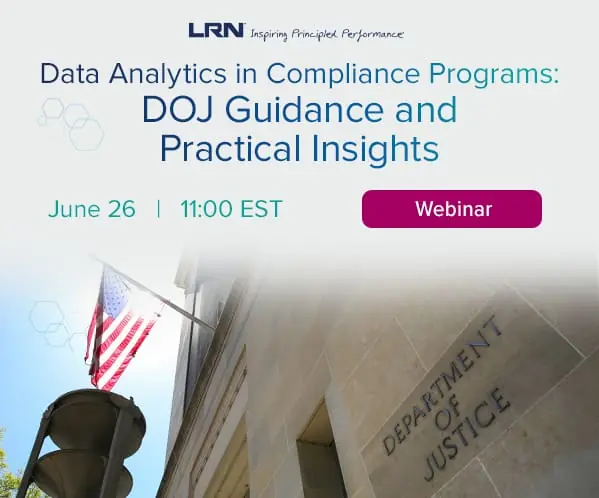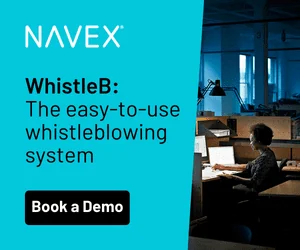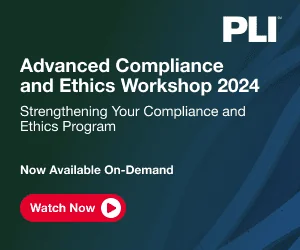This article was republished with permission from FCPAméricas Blog, for which Matteson Ellis is founder, editor and regular contributor.
Once again, top-level FCPA enforcement officials from the U.S. Department of Justice (DOJ) and Securities and Exchange Commission (SEC) provided an overview of current enforcement trends and priorities at this year’s ACI International Conference on the Foreign Corrupt Practices Act on November 17, 2015. The DOJ’s Assistant Attorney General for the Criminal Division, Leslie Caldwell, and Deputy Chief of the Fraud Section’s FCPA Unit, Patrick Stokes and the SEC’s FCPA Unit Chief, Kara Brockmeyer, offered their thoughts. This is the fifth year in a row that FCPAméricas has summarized what FCPA enforcement officials are saying at ACI.
Continued Focus on FCPA Enforcement. Each official stressed that U.S. authorities continue to consider FCPA enforcement a priority. Ms. Caldwell said that the DOJ’s FCPA Unit is hiring 10 additional prosecutors, increasing the unit by 50 percent, and that the FBI has established two FCPA squads. Mr. Stokes said that, since 2009, the DOJ has prosecuted 60 companies with $3.8 billion in penalties and prosecuted approximately 60 individuals. Ms. Brockmeyer said that the SEC has “a lot of cases at the finish line and more in the pipeline.”
Self-Reporting Necessary to Maximize Mitigation Credit. This year FCPA enforcement officials gave a sharper emphasis on the benefits of self-reporting, continuing their campaign in favor of voluntary disclosure. They said that, to get full credit in settlements, companies must not only cooperate with an investigation and remediate compliance failures, they must also voluntarily disclose the misconduct. Ms. Caldwell pointed to the PetroTiger case as an example of the U.S. government choosing to proceed against executives instead of the self-disclosing company, despite the fact that the company had engaged in “serious misconduct” that went to its highest levels. Ms. Caldwell and Mr. Stokes pointed to the Alstom case as an example of what can happen when a company does not self-disclose and cooperate, noting that Alstom was forced to plead guilty to the largest bribery resolution in DOJ history – $772 million. Mr. Stokes added that, had Alstom self-reported and cooperated, the company likely would have received a fine that was at least $496 million lower than the fine it received, and the parent company would not have had to enter a guilty plea.
Effects of Disclosure, Cooperation and Remediation. Mr. Stokes said that self-disclosure, cooperation and remediation can affect four components of a resolution:
- The form of the resolution can be impacted – for example whether a guilty plea is required, and whether the company enters a Non-Prosecution Agreement or Deferred Prosecution Agreement.
- They can affect whether the DOJ charges the parent company or its subsidiaries.
- They can influence the amount of the fine and any associated discounts.
- They can affect whether a compliance monitorship is included or not as part of the resolution.
“Game Changers” in Case Originations. Mr. Brockmeyer highlighted whistleblowers and international referrals as “game changers” in how FCPA enforcement officials are learning about cases. Ms. Brockmeyer said that there were 150 FCPA-related whistleblower reports this year and that whistleblowers are now more sophisticated. Mr. Stokes said that whistleblowers are coming to the DOJ earlier and making reports during companies’ internal investigations. Ms. Caldwell added that referrals from foreign law enforcement are on the rise and cited foreign media as another source of cases: “We don’t believe everything we read in the paper, but it is good to know what people are saying.”
Properly Scoped Internal Investigations. Ms. Caldwell said that enforcers do not expect companies to conduct “massive, far-reaching” investigations, but instead expect “tailored” and “well-focused” ones whose scopes are designed in a “thoughtful” way: “We don’t want you to boil the ocean.” When asked about use of law firms, she said that the key is for the company to hire someone who “knows what they are doing in the space,” is capable of scoping what needs to be done and “has the expertise.” Mr. Stokes said that proper scoping and other internal investigation best practices are critical since the DOJ will likely “pressure test” the internal investigation.
Internal Investigation Mistakes. Ms. Brockmeyer and Mr. Stokes said that common mistakes when cooperating with enforcement agencies include trying to spin the facts and offering defensive explanations of the facts. Mr. Stokes explained, “credibility is the key for us from the get go.” If enforcers only learn of bad facts later in an investigation, they are more inclined to question the investigation itself. Ms. Brockmeyer said that such spin does not give the agencies confidence that companies are really trying to root out a problem. They also highlighted preservation of evidence early in an investigation as a key component of a review and an area where companies often make mistakes. They advised that remediation should begin in the early phases of an investigation.
Discipline as Key to Remediation. Ms. Caldwell said that remediation of misconduct should involve “discipline of all employees that are involved in misconduct.” She stated that a company cannot simply discipline low-level employees without dealing with higher-level employees who are also responsible. If companies do not take appropriate action with higher-level employees, this sends a message that the company does not truly value compliance.
Bolstering a Company’s Compliance Function. Ms. Caldwell said that compliance departments sometimes do not receive sufficient funding or attention from senior management. She said that, if a company’s compliance officials are not earning salaries on par with others in the organization, or if the compliance office is placed in a remote location, “this sends a message.” She said, “Everyone is on notice as to what we expect…your goal is to try to stop corruption before it starts.” Mr. Stokes said that FCPA enforcement officials have the benefit of looking at a lot of compliance programs and hearing from many compliance professionals and therefore will look critically at a company’s compliance program to ensure it is correctly implemented. He said that this should include efforts like testing the program and auditing third parties for compliance issues.
International Cooperation. Ms. Caldwell said that the DOJ is working “incredibly” with international enforcement authorities all over world. She said that, when determining penalties, enforcers consider whose equities are greater and divide up cases accordingly. She said that the aim is to have a fair global outcome so that the company is not required to pay multiple times for the same misconduct. Ms. Brockmeyer explained that working with local enforcement officials has opened up access to evidence that the SEC would not otherwise have, allowing U.S. officials to conclude cases more quickly.
The opinions expressed in this post are those of the author in his or her individual capacity and do not necessarily represent the views of anyone else, including the entities with which the author is affiliated, the author`s employers, other contributors, FCPAméricas or its advertisers. The information in the FCPAméricas blog is intended for public discussion and educational purposes only. It is not intended to provide legal advice to its readers and does not create an attorney-client relationship. It does not seek to describe or convey the quality of legal services. FCPAméricas encourages readers to seek qualified legal counsel regarding anti-corruption laws or any other legal issue. FCPAméricas gives permission to link, post, distribute or reference this article for any lawful purpose, provided attribution is made to the author and to FCPAméricas LLC.


 Matteson Ellis serves as Special Counsel to the FCPA and International Anti-Corruption practice group of Miller & Chevalier in Washington, DC. He is also founder and principal of Matteson Ellis Law PLLC, a law firm focusing on FCPA compliance and enforcement. He has extensive experience in a broad range of international anti-corruption areas. Previously, he worked with the anti-corruption and anti-fraud investigations and sanctions proceedings unit at The World Bank.
Mr. Ellis has helped build compliance programs associated with some of the largest FCPA settlements to date; performed internal investigations in more than 20 countries throughout the Americas, Asia, Europe and Africa considered “high corruption risk” by international monitoring organizations; investigated fraud and corruption and supported administrative sanctions and debarment proceedings for The World Bank and The Inter-American Development Bank; and is fluent in Spanish and Portuguese.
Mr. Ellis focuses particularly on the Americas, having spent several years in the region working for a Fortune 50 multinational corporation and a government ethics watchdog group. He regularly speaks on corruption matters throughout the region and is editor of the FCPAméricas Blog.
He has worked with every facet of FCPA enforcement and compliance, including legal analysis, internal investigations, third party due diligence, transactional due diligence, anti-corruption policy drafting, compliance training, compliance audits, corruption risk assessments, voluntary disclosures to the U.S. government and resolutions with the U.S. government. He has conducted anti-corruption enforcement and compliance work in the following sectors: agriculture, construction, defense, energy/oil and gas, engineering, financial services, medical devices, mining, pharmaceuticals, gaming, roads/infrastructure and technology.
Mr. Ellis received his law degree, cum laude, from Georgetown University Law Center, his masters in foreign affairs from Georgetown’s School of Foreign Service, and his B.A. from Dartmouth College. He co-founded and serves as chairman of the board of
Matteson Ellis serves as Special Counsel to the FCPA and International Anti-Corruption practice group of Miller & Chevalier in Washington, DC. He is also founder and principal of Matteson Ellis Law PLLC, a law firm focusing on FCPA compliance and enforcement. He has extensive experience in a broad range of international anti-corruption areas. Previously, he worked with the anti-corruption and anti-fraud investigations and sanctions proceedings unit at The World Bank.
Mr. Ellis has helped build compliance programs associated with some of the largest FCPA settlements to date; performed internal investigations in more than 20 countries throughout the Americas, Asia, Europe and Africa considered “high corruption risk” by international monitoring organizations; investigated fraud and corruption and supported administrative sanctions and debarment proceedings for The World Bank and The Inter-American Development Bank; and is fluent in Spanish and Portuguese.
Mr. Ellis focuses particularly on the Americas, having spent several years in the region working for a Fortune 50 multinational corporation and a government ethics watchdog group. He regularly speaks on corruption matters throughout the region and is editor of the FCPAméricas Blog.
He has worked with every facet of FCPA enforcement and compliance, including legal analysis, internal investigations, third party due diligence, transactional due diligence, anti-corruption policy drafting, compliance training, compliance audits, corruption risk assessments, voluntary disclosures to the U.S. government and resolutions with the U.S. government. He has conducted anti-corruption enforcement and compliance work in the following sectors: agriculture, construction, defense, energy/oil and gas, engineering, financial services, medical devices, mining, pharmaceuticals, gaming, roads/infrastructure and technology.
Mr. Ellis received his law degree, cum laude, from Georgetown University Law Center, his masters in foreign affairs from Georgetown’s School of Foreign Service, and his B.A. from Dartmouth College. He co-founded and serves as chairman of the board of 







